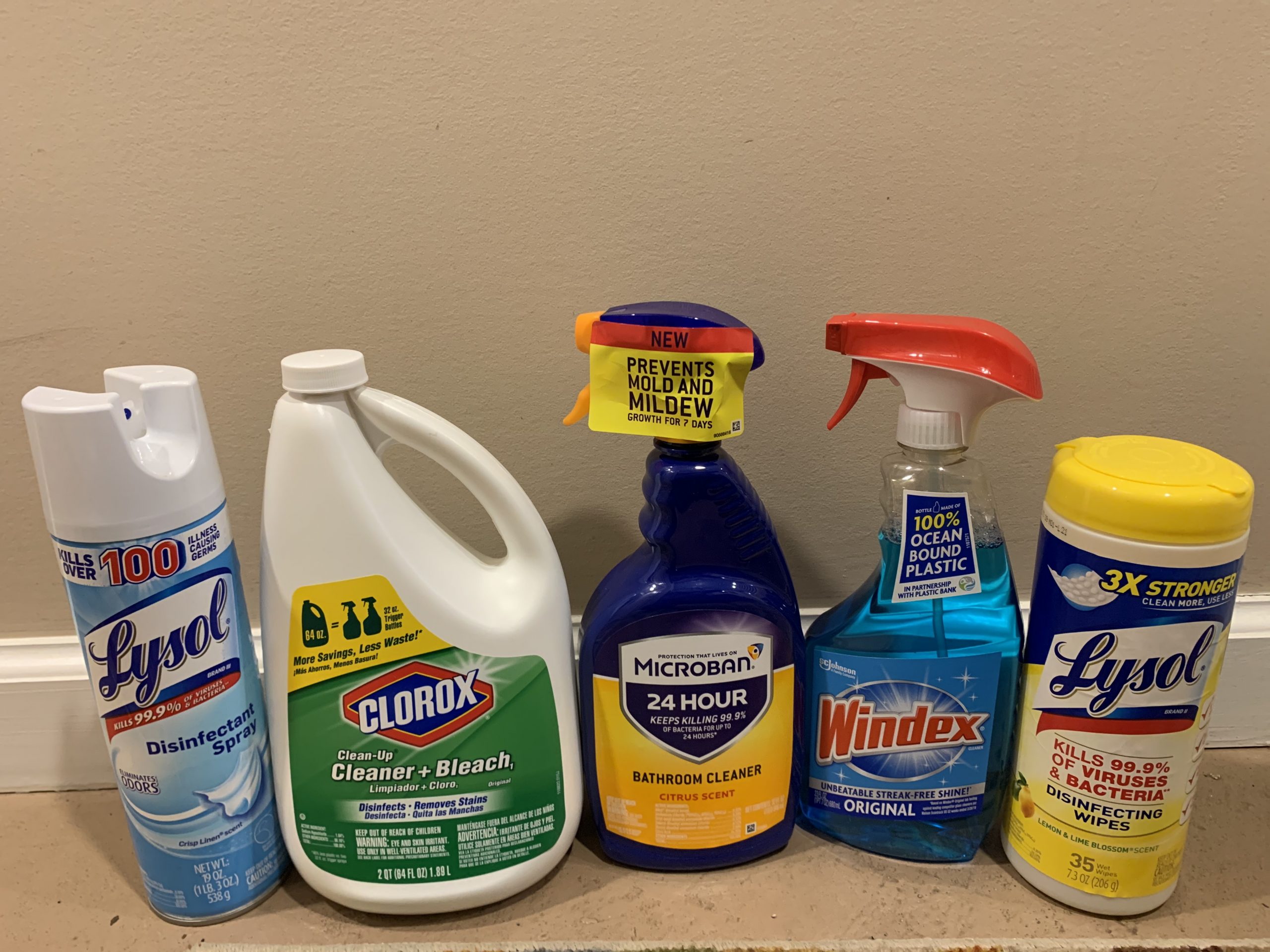The COVID-19 pandemic has created an increased demand on many sectors of the United States healthcare industry, including an unforeseen one — poison control centers.
On April 20, the CDC released a report that said from January to March 2020, poison control centers across the nation received significantly more calls about exposure to household cleaners compared to that time frame in recent years.
Officials suspect the uptick is linked to COVID-19. People are cleaning more and using strong disinfectants such as bleach, which poison control centers have seen the largest increase in calls about from 2019 to 2020, according to the CDC.
The release included two case studies of common calls received by poison control centers: misuse of cleaners (specifically bleach) and children ingesting household cleaners.
This pattern is being observed in Maryland, as well.
“What we’ve seen is an increase in calls to the Maryland Poison Center about products like hand sanitizer, bleach products, detergents, etc. over the past six weeks or so,” said Bruce Anderson, executive director of the Maryland Poison Center.
Anderson told Capital News Service that the “vast majority” of new calls were related to children under the age of 6.
“What we’re seeing is very much in line with what other poison centers are seeing,” he said.
Typically, about 40% of calls to poison control centers are about children under age 6, who “get into whatever they have access to because they’re young, and just exploring their environment,” Anderson said. Since people are using products such as household cleaners, hand sanitizers, soaps and detergents more frequently, they may be left in more accessible locations, within reach of small children.
“So, now that, for example, bleach may be out and placed by the front door to disinfect the box that was delivered by Amazon, it’s more available than if it was stored in the laundry room, up on a shelf,” he said. “It’s more likely that little kids will be able to get into it.”
Other household items that Anderson says are frequently discovered by children are kitty litter, house plants, diaper cream and medications.
President Donald Trump mused last week that injecting disinfectant might help people fight off the coronavirus. Politicians, companies and health professionals have since warned the public against injecting or ingesting disinfectant products.
.@POTUS, this is dangerous and irresponsible.
Do not, under any circumstance, inject or ingest disinfectants. For accurate information on protecting yourself from #COVID19, visit https://t.co/AosQfoCoLY instead.
— Senator Ben Cardin (@SenatorCardin) April 24, 2020
Anderson said the center has not seen a spike in calls about adults intentionally using bleach and other chemicals as a coronavirus treatment.
The Maryland Poison Center has several suggestions for how to prevent poisonings, including:
– Storing harmful substances such as medication and cleaning products in a location that is out of sight and reach from children, and preferably can be locked. Even if these products may be used repeatedly throughout the day, they should be returned to this location and not be kept out in between uses.
– Keep any harmful products in their original packaging, do not put them in food and drink containers (such as a water bottle).
– Don’t mix household cleaners together and always read the label and directions before using.
– Tell children to not touch or put something in their mouth without asking an adult.
– Teach children how much hand sanitizer is needed to clean their hands, and supervise them while they use it. Make sure your hands are completely dry before touching anything.
If you or someone you know may be poisoned, call the Maryland Poison Center (or your regional poison center) at 1-800-222-1222 after performing first aid. If the person is not breathing, unconscious or having a seizure, call 911 immediately.
CORRECTION: An earlier version of this article provided an incorrect phone number for the Maryland Poison Center.

